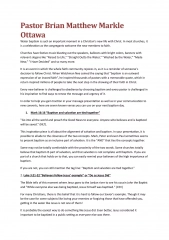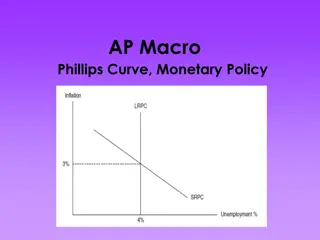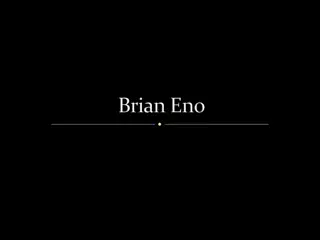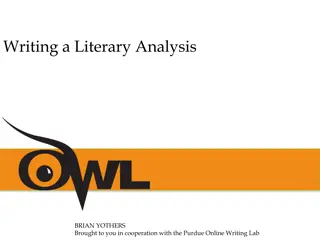
Brian Phillips: Literature, Ethics, and Sports Insights
Delve into the captivating world of Brian Phillips, a prolific writer with a background in creative writing and literary theory. Explore his musings on sports, ethics, and literature, as well as his takes on iconic figures like Federer and Hunter S. Thompson. Discover how Phillips intertwines philosophy and literature to provide unique perspectives on soccer and sports culture.
Download Presentation

Please find below an Image/Link to download the presentation.
The content on the website is provided AS IS for your information and personal use only. It may not be sold, licensed, or shared on other websites without obtaining consent from the author. If you encounter any issues during the download, it is possible that the publisher has removed the file from their server.
You are allowed to download the files provided on this website for personal or commercial use, subject to the condition that they are used lawfully. All files are the property of their respective owners.
The content on the website is provided AS IS for your information and personal use only. It may not be sold, licensed, or shared on other websites without obtaining consent from the author.
E N D
Presentation Transcript
Brian Phillips Sports|Ethics|Literature 09.26.2016
Brian Phillips has some sort of creative writing / literary theory background at Columbia University Academia either didn t work out, or he got fed up with it, so he started a blog, Run of Play, in 2007, where he imported his knowledge of philosophy and literature to talk about soccer The blog was a hit and led to writing opportunities for a number of mainstream publications Became a staff writer for Grantland Since Grantland shut down, he s been a special features writer for MTV.com Biographical Stuff
Hunter S. Thompson Famous Gonzo journalist who dropped acid and did copious amounts of drugs and then wrote under the influence Fear and Loathing in Las Vegas The Kentucky Derby is Decadent and Depraved Makes the events and people he covers seem insane, animalistic, and above all absurd Ethos: Yes, I m stoned out of my mind, but wouldn t you have to be to live in a world like this? Phillips: stories on the Iditarod, sumo wrestling in Japan, etc. From DFW, Phillips gets his penchant for an obsession with detail and his hyperliteracy Also inherits Wallace s legacy as the smartest sportswriter David Foster Wallace Phillips s Influences
How does Phillips buy into some of the arguments made by Wallace and Rankine? How does Phillips disagree with some of the arguments made by Wallace and Rankine? What tools does he use to issue those disagreements? Questions to Track
In 2011, Phillips wrote Still Life about Federer, where he argued that Federer revolutionized how we think about the arc of athletes careers The saddest moment in the career of a great athlete is the one when he s tagged with the word still. One day you re fast. One day you re slow. There s an in-between day when you re still fast, and that s the day when everything hollows out. Roger Federer has spent longer as a still athlete than any great player I can remember. You could even argue that it s one of the signs of his greatness. Phillips on Federer
In 2015, Phillips updates the article with The Sun Never Sets Typical Phillips: starts with a weird sci-fi novel and uses it as a weird lens to look at Federer Phillips writes that his still thesis still stands Federer is a Nike-blazered Prospero still special, still magical, but from his old role atop the game, banished. Phillips wonders how Federer can be enjoying himself so much despite no longer being #1 Phillips on Federer
Who knows what goes on in any athletes head, but he comes across as someone who has genuinely found a way to solve the three brutal overlapping problems that come for any really great athlete late in his or her career. Namely, how to (a) keep up the phenomenal and borderline terrifying level of motivation required to commit to nonstop training and preparation after you ve already realized all your goals, while (b) making peace with the fact that you not only aren t as good as you once were but in fact are doomed to get worse, while (c) maintaining a realistic, evolving sense of what you can do so that you know how to plan and when to feel proud, frustrated, optimistic, etc. The worst-case scenario for tackling these problems may be Tiger Woods, who seems to have lost all perspective on his own abilities while going to pieces within a sport he visibly hates; the best is Federer. Phillips on Federer
What you take from watching him now is not so much a sense of tennis, the abstract world of angles and pure calculation that he seemed to represent in his youth, but the sense of a life. He likes doing this; that s the point. Being on tour, being competitive, being celebrated: This stuff feels more satisfying to him than the lonely relishing of some legacy in which he had a better head-to-head record against Djokovic. So why not keep it going as long as he can? And not to get too dogmatic about what s basically the story of a person liking his job, but isn t that the model of grown-up maturity that we should want from an elite athlete? Whereas Wallace invests the athlete with a sort of mythic or spiritual quality, Phillips is invested in inserting normalcy : Federer giving his kids a bath, checking into a hotel, etc. Phillips on Federer
[W]hat I find most admirable in Federers late career is simply the vision of freedom it implies. The idea that you can make your own way. That you don t have to give up what you love simply because you re told to. That what hurts you might also fulfill you, or even make you happy, because life is not simple. Even sports are not simple, unless you force them to be. We have certain expectations of the arcs or storylines that athletic careers are allowed to follow. Federer s extended still phase teaches us that those arcs are manufactured stories; the real lives of athletes are much more interesting Allowing athletes to choose paths like Federer s is freeing not just for the athletes themselves, but also for those who watch them Phillips on Federer
Phillips writes Serena Williamss Moment, Forever in Aug. 2015, as Serena is going for the Grand Slam Typical Phillips: starts with a bit of context, then a weird reference to a contemporary poet re-writing Homer s Iliad for the current moment This is a moment because it is a culmination for Serena s career, and this is a moment because it is a culmination for what Serena s career represents. Phillips on Serena
There is, of course, more to it than that. As a black woman from Compton in a sport whose roots are affluent and white, Serena has always meant more to tennis, has always burned more intensely within the game, than her career trajectory alone would suggest. She has presented a threat to tennis fans opposed to change, and tennis fans have sometimes presented a threat to her. Her career has felt larger than life partly because of its transformative power and partly because of the drama that power has awakened in stadiums, over and over again: Rarely in the history of modern sports has a figure of such obvious strength seemed to stand so often in a kind of atmospheric peril. The strength was greater than the peril, and that s one thing, apart from her talent, that she has given us. Phillips on Serena
But I am thinking about freedom. Of course no one on earth is ever perfectly free, and there are as many ways to be unfree as there are people: your debt, your depression, your unreturned love, your job, your worry, your longing. One of the ways to be unfree, I think, is to be obliged to mean something. Freedom is the freedom to be meaningless. Is that obvious? A white man writing about sports, to pull an arbitrary example out of the air, is not operating in an arena where his mere participation will be construed as a political act: I am permitted to be, say, a lyric weirdo about soccer without my weirdness ramifying much beyond my own brain. This is the discretion of privilege, this leisurely prerogative whereby individuality draws its own boundaries. The more of one s meanings are imposed from the outside, as a general rule, the further from privilege one is. Phillips on Serena
Serenas burden of meaning places her a long way away from this kind of discretion. Her importance is too great. She faces expectations that I can barely imagine, and she lives up to them. One of the things I love about her, though, is that she still insists on her freedom to be meaningless. Whereas Wallace suggests that spectators particularly Wallace himself, but all fans too have a unique vantage point by which to make meaning of athletes, Phillips insists that certain athletes refuse others expectations of them, and refuse to be reduced to their political or symbolic significance. In other words, Phillips takes a stand for athletic agency, athletes abilities to tell their own stories about themselves, rather than having stories be told about them or for them. Phillips on Serena






















